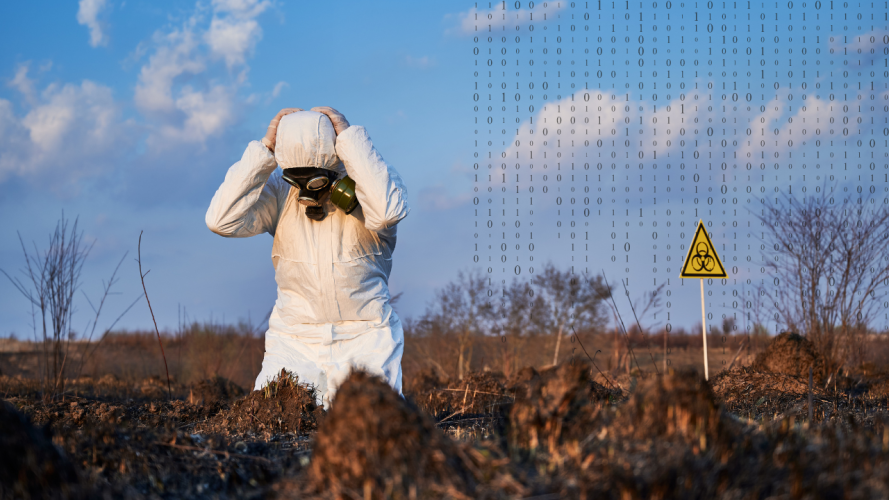“A new trend has emerged that has gained traction in some states as a healthy and cost effective alternative to traditional burial. This new trend is called human composting and it’s likely to gain momentum in the upcoming year. I was asked by Ben Zeisloft of The Daily Wire to provide comments on this practice which he cited in his article yesterday.
How should Christians think about this new green burial practice?
The Imago Dei and Christian Burial
Just this past week, Governor Kathy Hochul (D-NY) signed a law legalizing human composting as a means of “natural organic reduction” alongside cremation and entombment as an acceptable burial method in the state of New York. Should Christians just readily accept this new trend?
In Genesis, immediately after Adam and Eve disobeyed God by eating of the forbidden fruit, sin entered the world. Not only did sin enter the world, but this sin resulted in death, decay, and division between man and his Creator (Romans 5:12). When God came to confront Adam and Eve and the ancient Serpent—in Genesis 3:17-19 he spoke directly to Adam and is made this statement in verse 19:
By the sweat of your face you shall eat bread, till you return to the ground, for out of it you were taken; for you are dust, and to dust you shall return.
If God said that all of humanity was formed from the dirt and would return to the dirt as a result of sin—what’s the big deal with human composting? The controversy isn’t the breaking down of the human body that’s controversial. It’s what happens after the process of human composting is completed and the human body is transformed into a pile of dirt that really matters.
Pantheists have argued that everything can be reduced to matter, God is everything and everything is God, and that every existing entity is only one Being. Under this view, there is no difference between wood chips, alfalfa, and a human body. But, this is in complete contradiction to the view historically held by Christians.
From the earliest of times, the human body has been considered sacred. The rationale is based on what is known as the imago Dei—which affirms the fact that God created every person equally in his own image (Gen. 1:26-28). As divine image-bearers, the whole of humanity has inestimable value and dignity before God and deserves honor, respect and protection.
Therefore, the sanctity of human life is not determined by sex, ethnicity, age, religion, condition, or socioeconomic status. This is the foundation from which the Christian community advocates for the protection of the preborn and opposes abortion or any form of mutilation of the human body including euthanasia and sex change surgery.
Traditionally, pagan traditions have practiced cremation, and in some cases the burning of the body as a form of sacrifice to their idol (Lev. 18:21, 20:2–4; Deut. 18:10). However, Christians have buried their loved ones with the final resurrection of the dead in view. This practice envisions the day when Christ returns (John 11), the world is renewed, and death is forever banished for all eternity (Rev. 21).
Save the Whales, Kill the Babies, and Trash the Human Body
According to statistics and studies, the green economy generates some $1.3 trillion in annual sales revenue in the United States. Interestingly enough, while there’s a big push to save the planet through alternative sources of energy and the reduction of pollution—there’s a passionate fight to keep abortion legal and ongoing discussions about the options of assisted suicide (currently legal in 10 jurisdictions in 10 different states in the US). Our confused culture readily communicates that whales are essential to our ecosystem, but humans are disposable.”
Continue reading the full article by G3min’s Josh Buice
https://g3min.org/human-composting-and-the-sanctity-of-the-human-body/




Add comment